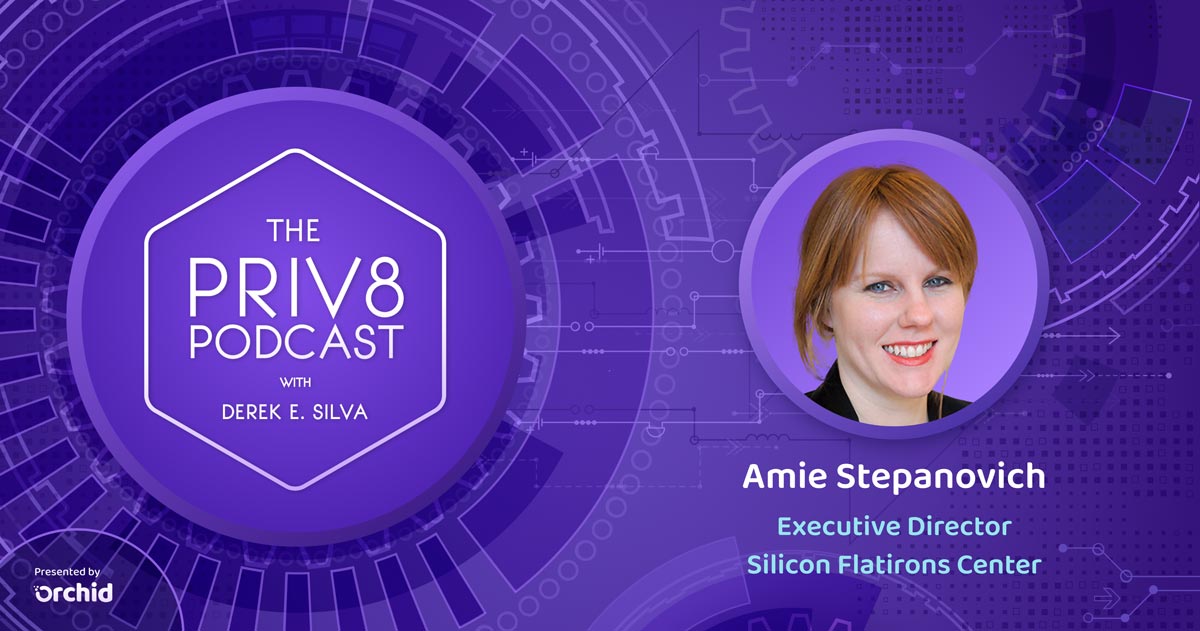
Silicon Flatirons’s Amie Stepanovich on Digital Privacy and Constitutional Rights
Oct 18, 2021
Over the past several decades, the ways that people store and use personal data have changed significantly. But public policy has been unable to keep pace with cultural and technological shifts around personal data.
"Twenty years ago, people had places in their homes where sensitive information lived. They had filing cabinets in their houses that held all of their important documents. They had photo albums where they kept their photos," said Amie Stepanovich, Executive Director at Silicon Flatirons, a research law center at UC Boulder. She was speaking to Orchid's Derek Silva on this week's episode of the Priv8 Podcast.
"But today, people's personal information is hosted online by third-party companies, largely in cloud storage, or on centralized servers somewhere," she said. "That changes the entire dynamic of how we live our lives, how we interact with companies, and the level of risk we're exposed to."
Amie highlighted how changes in how personal data is stored have important law enforcement implications. "The US has a law called the Third-Party Doctrine. It states that once people turn over data to a third party, they relinquish their Fourth Amendment rights over that data.

"Now that people give away their data to companies—including things they would normally keep private—they may not realize that they're giving their Fourth Amendment rights away, but they are."
Today, policymakers are examining some of the more nuanced ways in which the Third-Party Doctrine applies to different situations. "For example," she said, "if your location is tracked by your cell phone company at all times, does that mean you don't have constitutional privacy rights over your location?
"The Supreme Court is finally analyzing these types of questions. It's going to take time because the Court moves at a very slow pace. Still, issues like these are very active in legislative and law enforcement spheres."
You can check out Derek's entire conversation with Amie here. And don't forget to subscribe to Priv8 Podcast on your favorite streaming service.
If you enjoyed this blog, subscribe here for privacy news, commentary, and product updates from Orchid.



